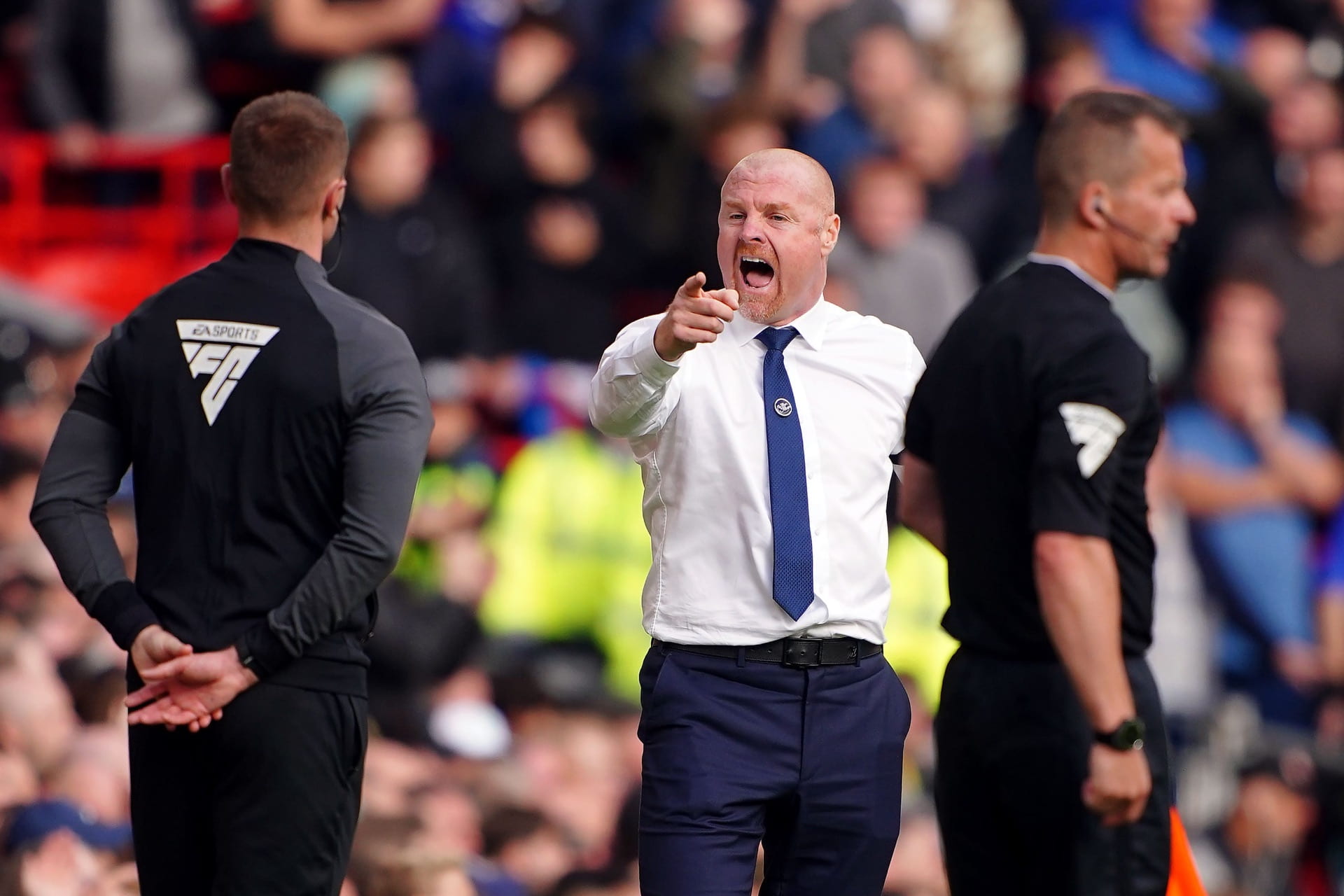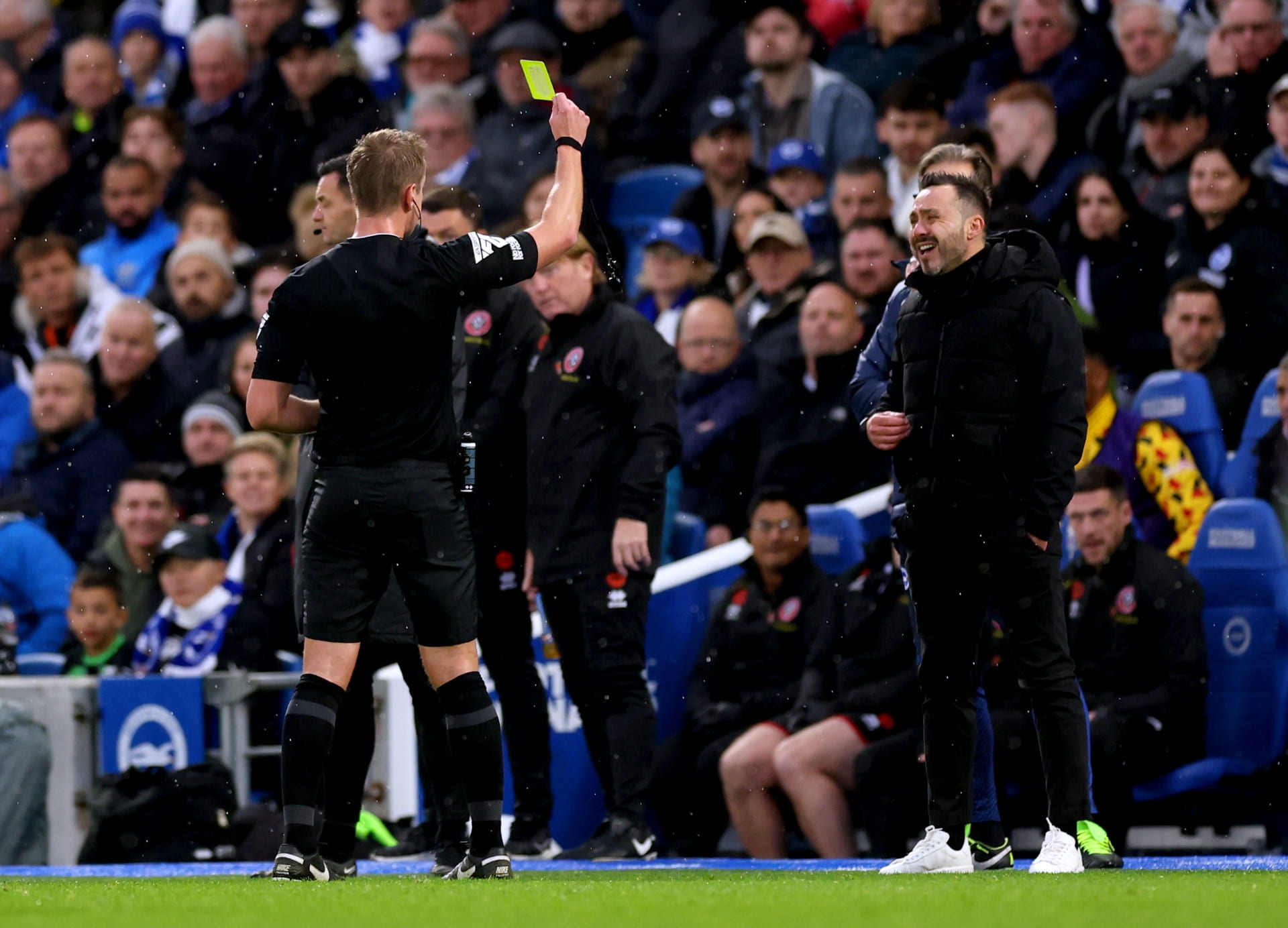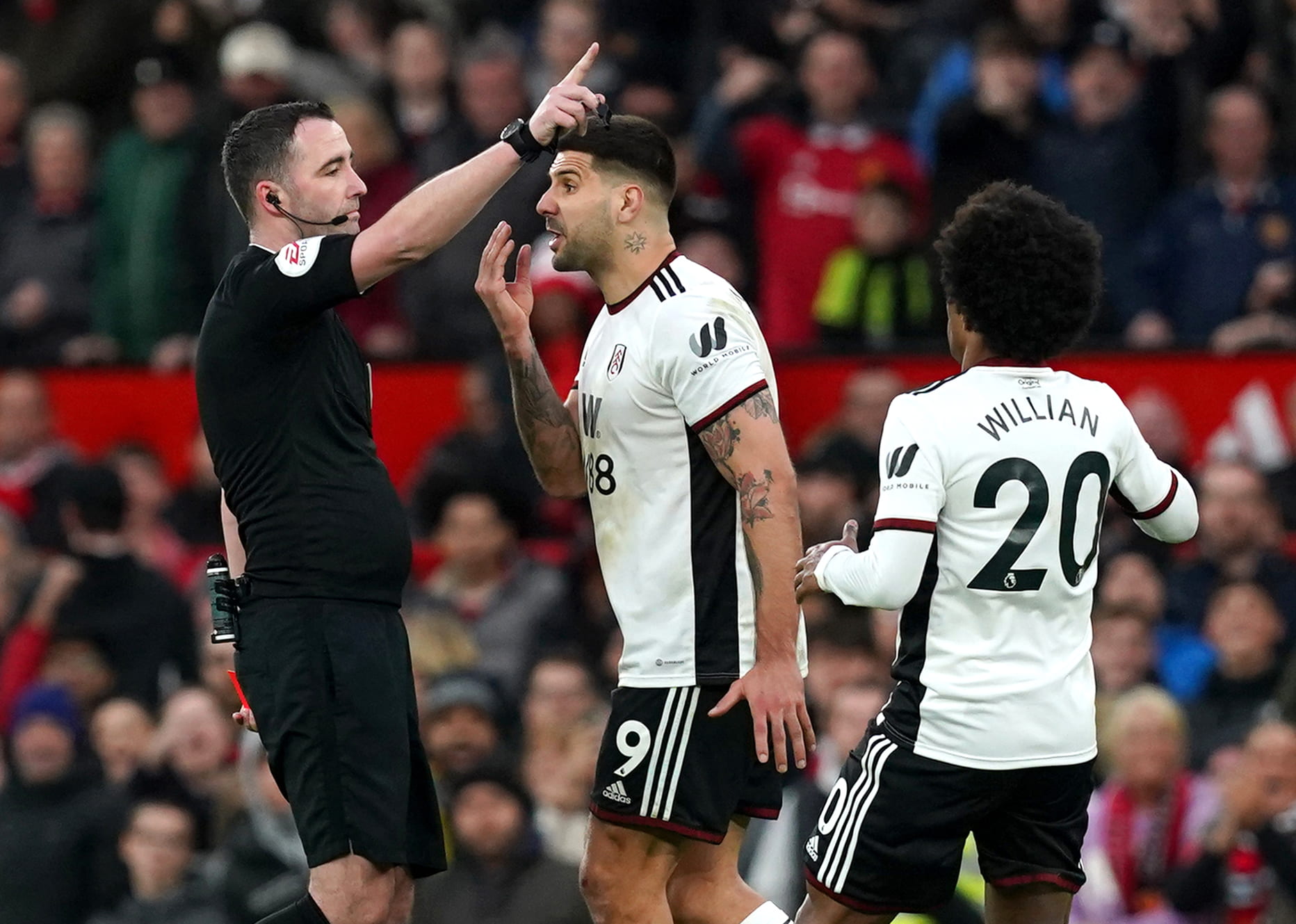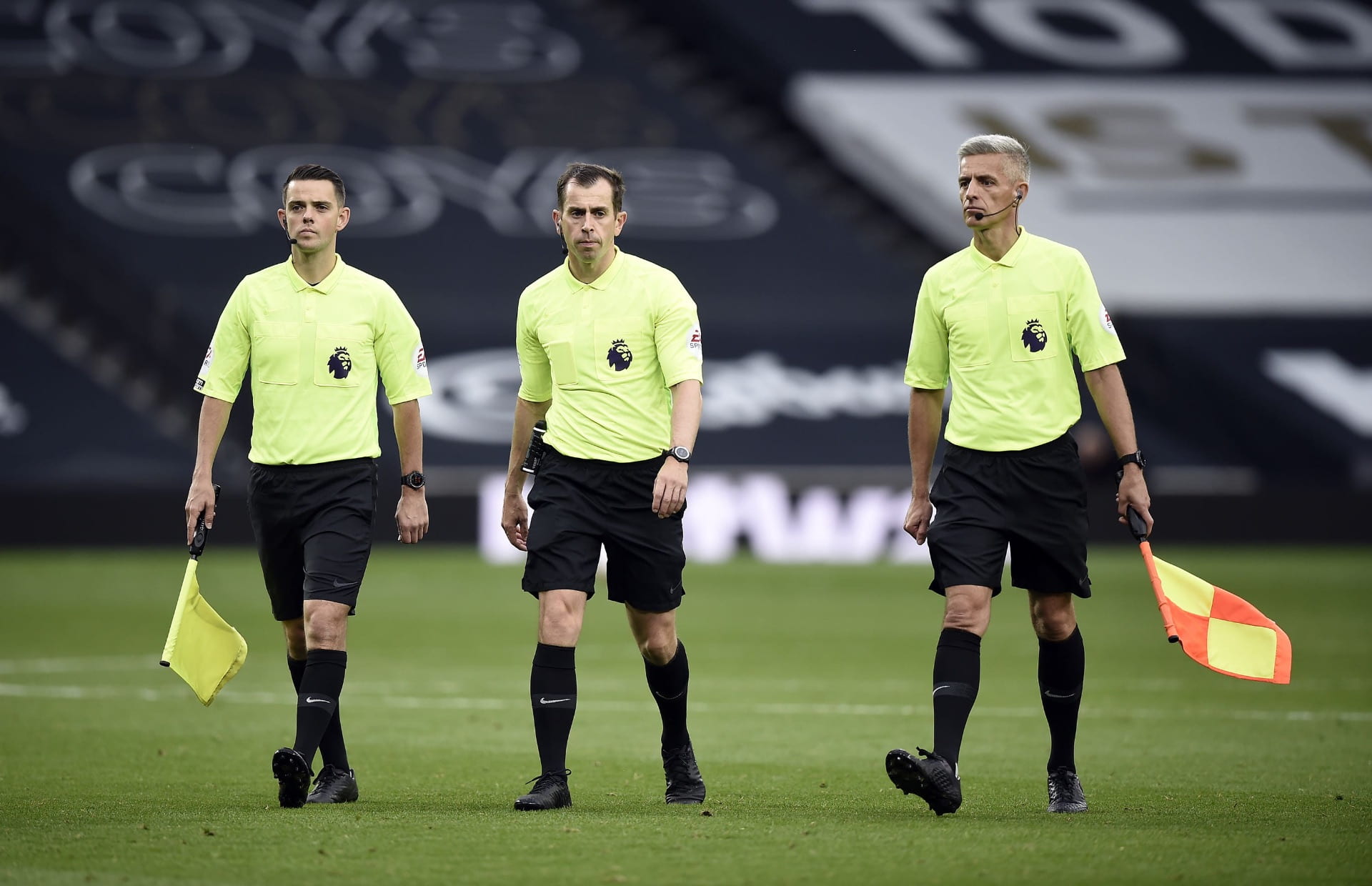
The referee has been a mainstay in football since 1842 when the position was first introduced in a match between the Bodyguards club and the Fearnought Club in Rochdale. Way back in 1581, educator Richard Mulcaster described the need for a “judge over the parties in foteball.”
In those times referees simply just served the purpose of being timekeepers with the players on the pitch themselves enforcing the rules of the game. In the many years that have followed the role of a referee has changed drastically.
In today’s game the role of the referee is scrutinised more than ever, perhaps even more so than the players on the pitch.The introduction of social media has allowed people to voice their opinion however they wish, and with officials under the microscope more than ever as it is, this has only led to them being viewed negatively by the masses.
In the 21st century referees in the top-flight are criticised, targeted, and abused more than ever.
This has trickled down through the footballing pyramid from the professional game all the way down to grassroots and youth football.
Some of the stories I have heard from referees during this investigation have shone what is heralded as many as the beautiful game, in a pretty ugly light.

Paul Bahbout, a referee of 25 years told me of a few incidents he has experienced in his career.
“I’ve had a player come onto the pitch with a knife once, once in a carpark a spectator boxed me in so that he could attempt to fight me, I’ve been told by a player that if I send him off, he will go to his car and get a gun.
“There are many other examples of lowlifes in the last 25 years.”
Nathan Sherratt, managing director of The Third Team, an organisation that offers support and advice to referees across the globe told me about one of the worst experiences he’s had so far in his time refereeing.
“In a semi-professional game I’ve had club officials and management coming on the pitch and threatening to fight me.
“That manager in particular last season was stadium banned for 155 days or something like that.”
Referee abuse seems to be prevalent now more than ever with many referees up and down the country fearing for their safety on a weekly basis.
One referee who wished to remain anonymous told me that they were punched by a player who they sent off for dissent, the offender only went on to receive a six month ban
“The only thing that hasn’t happened yet is a referee being murdered,” Martin Cassidy, chief executive of Ref Support UK famously told The Athletic.
Another referee who wished to be kept anonymous told me they frequently had to deal with abuse and aggressive comments on the pitch such as “are you having a ******* laugh ref” and “How have you not given that you silly ****.”
A BBC questionnaire answered by over 900 amateur referees revealed that 31% of respondents had been physically abused by either spectators, players, or coaches in games.
The FA hit back saying that the number of assaults on referees is low with an assault occurring in just 0.01% of grassroots games.
But with a staggering 850,000 games of grassroots football a year, that still means on average there are two assaults on referees per week in England.
A spokesperson for the football association told The Athletic that “while it is only a small minority of people who behave badly to referees, this is still too many and we will continue to do everything to stamp out this behaviour from our game.”
Some 283 respondents to the questionnaire revealed they’d had a threat of violence made against them, or a loved one during a game.
375 referees said that they had received personal abuse during matches, comments regarding appearance, gender, race, or sexual orientation.
“This season I’ve had homophobic abuse from a spectator, I’m not gay but I work with a lot of colleagues who are,” said Sherratt from The Third Team.
“It doesn’t hurt me but that’s the reality of what’s out there and what’s happening, it could be really hurtful to a colleague of mine.”
An astonishing 82% of respondents aged under-17 said that they have received verbal abuse whilst officiating.
“I’m an FA mentor, and I was mentoring a very young referee last season and I saw a coach, it was very young kids maybe under-sevens, but he was saying if this referee wants to get to the premier league, they’ve got to get these decisions right,” shared Sherratt.
“I’m operating a semi-professional game as a referee and it almost felt as though he was placing the same expectations that he would on us on a 14–15-year-old kid who’s refereeing in his first season and first games, it’s madness.
“25% of the work that I do is around newly qualified officials who are maybe finding challenge with getting to grips with parent spectators and managing players bearing in mind they tend to be children themselves.
“The referees get a lot of abuse and stick for every decision and situation; they’re microscopically analysed by parents.”

I spoke to a referee from Staffordshire who said one morning when refereeing an under-11 game, he had parents shouting abuse at him from the side-lines.
“I was shaking with anger and felt I couldn’t approach the parent, I’m usually very placid and tolerant but this parent had got to me.
“A full report was sent to the FA and the club involved but never heard of any outcome or if the parent was dealt with.”
In late 2023 the FA put out a statement saying that they ‘encourage all match officials to continue to report any issues they have within their games to the appropriate County FA discipline team.’
I approached Staffordshire FA for comment and received a statement from chief executive officer Adam Evans which read:
“I can confirm that all reports received by this association are investigated in line with FA regulation.
“I am not in a position to comment further.”
It’s no surprise to find out that in the period of 2017-2022, an estimated 10,000 officials gave up refereeing.
The FA reports that it hires new referees just as quickly as it loses them but what they fail to tell is that due to the current climate, four out of five of these new recruits will quit within two years.
“What happens in the Premier League has a massive impact on grassroots and people don’t realise that, said Sherratt.
“What gets said on social media about referees, that becomes an accepted way to speak to referees as a whole, at all levels.
“Whether it’s under-nines or professional level football, that’s the challenge that we’ve got because there is such a negative perception of referees at the very top level, it filters down.”
It was less than a year ago that Aleksandar Mitrovic received an eight-match ban for pushing top-flight referee Chris Kavanagh and pointing in his face during Fulham’s FA Cup quarter-final against Manchester United.
“That incident happens, and it gets put on television, but I don’t think people see the ban that he got as a deterrent,” said Sherratt.
“The only way to really do that would be to give him a 20-match ban or something like that for it to really have that impact.”
It’s clear that action must be taken to safeguard referees across the whole footballing pyramid before the current crisis worsens.

In February 2023 the FA revealed that it had received permission from the International Football Association Board to become the first country worldwide to roll-out a bodycam trial. They opted to trial the devices in four areas: Middlesbrough, Liverpool, Worcester, and Essex at adult grassroots level.
Two months later, the FA revealed that the technology acted as a good deterrent as not once had any referee felt the need to activate the camera across the whole trial period.
In late 2023, the FA’s head of refereeing Daniel Meeson revealed that the bodycam trial would be extended into 2024 with the number of areas using the technology doubling from four to eight.
However, there are concerns over the finances involved in upscaling the use of cameras, as of 2023 there were 28,000 qualified referees in England alone.
Janie Frampton, former leading referee, and chair of Ref Support UK, told the BBC that “the trial is using bodycams and the upscaling of that is incredibly expensive, I know that is a bit of a sticking point right now.”
The FA has already come out and said it doesn’t want clubs to have to pay for the cameras and that it is looking into funding options when the trials end.
Before we see widescale implementation Meeson said the trial would need at least two or three seasons for sufficient analysis before they could even consider a further rollout.
Therefore, more practical solutions are required in the here-and-now with Sherratt suggesting that fines need to be increased to the point at which they’re putting people under financial pressure.
“Whether it’s a club official or a player I would like to see them banned temporarily until their fine is paid.
“I would like to see bigger fines (for individuals), the types of fines that really put people under financial pressure because if it hurts them in the pocket and they’re struggling to pay their mortgage…that type of thing would be a good type of deterrent.
“Maybe having those fines then double as well as points deductions, so if you’re a coach that gets fined £200 for abusing a referee and you do it again later on in the season that becomes £400 and then again and it’s £800.
“That’s when people are going to start to have a real problem because £800 isn’t short change to grassroots football participants.”

Whilst writing this story I decided to take myself to a random local semi-pro game just to audit how the referees were treated on the day.
It took just six minutes for the referee to brandish a yellow card to one of the players for dissent.
A penalty was awarded in the first-half and the referee was hounded and surrounded by all ten outfield players from the team that had committed the foul.
Later in the second-half one of the teams scored and a coach from the side that conceded believed it was offside, running down the touchline to shout in the face of the linesman to make his point.
This was just one random game I happened to go to whilst investigating this issue, this highlights the sort of abuse officials have to take on a weekly basis.
It’s clear to me having investigated this issue that interventions must be put in place before there is a tragic end to the tale.
Without officials there would be no game that we love so dearly, so it’s time we look after the people that look after us on the pitch.
